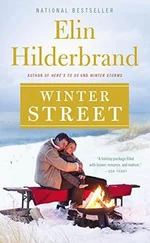“Word is out,” Kevin says. He goes to answer it. A few seconds later, Scott walks into the kitchen.
“I just heard,” he says. He looks at Ava. “Are you okay?”
Ava shrugs.
“It’s a waiting game,” Drake says.
“Scott, can I get you a cup of coffee?” Kelley asks.
“I’m good, thanks, Mr. Quinn.”
“We missed you at lunch,” Kelley says.
“Yeah, well-”
Scott is interrupted by the ringing of Margaret’s phone.
Everyone in the kitchen stops dead quiet, staring at the name on the lit screen.
Darcy.
The marine’s name is William Burke. He is twenty years old, from Madison, Wisconsin. He is being treated for head trauma and various broken bones and lacerations. He was discovered by a civilian Afghani family. They took him to a U.S. military outpost on the outskirts of Sangin.
“That’s all we have right now,” Margaret says. “He’s alive, he was strong enough to escape, and my source on the ground says officials are optimistic that most or all of the other soldiers are alive.”
“Most?” Mitzi says.
“We just don’t know,” Margaret says. She hugs Mitzi tightly. “But this is good news, Mitzi. This is good news.”
Tears drip down Mitzi’s face. Margaret looks at Kelley and says, “We need this kid to live. If this kid lives, he can give the military valuable information.”
“Valuable information,” Kelley says.
“So that they can find Bart,” Margaret says.
His son. His baby boy. Not a perfect kid by any stretch of the imagination, but a beloved child nonetheless. A child he and Mitzi had enjoyed and appreciated.
He hears Mitzi whispering under her breath. Bart Bart Bart Bart Bart.
It’s Kelley who suggests they all go into Bart’s room to pray. He and Mitzi, Margaret and Drake, Ava and Scott, Kevin, Isabelle, and Genevieve, Jennifer, the boys, and even George. They all file into Bart’s room and, without words, join hands in a circle. The room smells like Bart was there five minutes ago-pot smoke, Doritos, dirty socks.
Kelley says, “Dear Lord, we are a family, prostrate before you, asking for the return of our son, our brother, our uncle, Bartholomew Quinn. Please bring him safely back to this island, back to this house, back to this family. And we pray for the recovery of Private William Burke and for his family and loved ones…”
Suddenly Kelley can’t breathe. He can’t get air in or out of his lungs. In his mind’s eye is a picture of Bart’s face in the seconds just after he got beaned with the baseball thrown by D-Day, who was a head taller than Bart, and three years older. He can see the pain on Bart’s face and the urge to mask the pain, the desire to be brave, to shake it off, to stand back up at the plate and try to hit the ball again. You didn’t hurt me, you didn’t scare me, pitch to me again! This is the same attitude he will be exhibiting now, wherever he is. Bart grew up afraid of nothing because he never had any reason to be afraid. He, more than the older children, was certain of his talent, his charm, his good luck. He is alive somewhere and he is bravely plotting his own escape.
Kelley will see his son again.
It is the certainty of this that draws all of the oxygen out of Kelley’s lungs.
“Amen,” everyone says.
Kelley falls to his knees first, and then collapses on the floor.
“Kelley!” Mitzi screams.
Kevin and Ava simultaneously call 911. Drake kneels down to check Kelley’s pulse. Kelley hears Drake say, “He’s unconscious.”
Bart, Kelley thinks. This is good news, he thinks.
Margaret says, “Help him, Drake. Help him!”
Mitzi says, “Kelley, baby, please wake up. Please, Kelley. Don’t you leave me, too.”
Kelley is taken to Nantucket Cottage Hospital, where he will be kept overnight for observation and tests. It’s exhaustion, the doctor thinks. Stress, low blood sugar. Nothing to be worried about, yet.
At four o’clock, after things have quieted down, Jennifer sits in an armchair in the living room, where she can see the twinkling lights and whimsical ornaments on the Christmas tree. She calls the prison in Shirley to talk to Patrick. The oxy has worn off and she resists taking another. She feels scooped out, and her nerves are frayed.
The one thing that never disappoints is how happy Patrick sounds to hear from her during their weekly phone calls. He sounds like he’s been holding his breath for a week.
“Hey, beautiful,” he says. “Do you know how much I miss you? Do you know how much I love you?”
“I do,” she says. “And I miss you. And I love you.”
“How was the weekend?” he asks. “Tell me everything.”
Jennifer takes a deep breath. “Get ready,” she says. “This might take a while.”
On the Friday of Christmas Stroll this past year, 2014, I lost a person whom I loved very much. Her name is Grace MacEachern and when she passed-suddenly, in her sleep-she was eight and a half years old.
Grace’s parents, Matthew and Evelyn, are friends of mine. Evelyn is so dear to me she is more like family than friend. To an outside observer, then, it would seem that my friends lost their child, and like any parent, I keenly feel their loss and their unimaginable pain. However, I more than feel it; I share it. For I always felt that Grace was not just my friends’ child, but my friend .
I am a novelist, but can I do a worthy job of describing Grace? I will try.
Grace was a life force. She was intense. She was brilliant and she had a huge, beautiful, room-brightening smile. Despite suffering a host of physical and medical challenges, the child never failed to beam and she never failed to ask a zillion questions in rapid succession. (“Hi, how are you? What did you eat for breakfast? What are you going to have for lunch? Do you have any lotion? Do you have any lipstick? Are you pregnant?”) She learned my name at an early age, and when she caught a glimpse of me, she would come running and grab me around the legs. Her grip was ironclad. I like to flatter myself and think that I am really special and magnetic to children, but the truth was, Grace was super passionate about two things: Chapstick and cupcakes. I was good for one 100 percent of the time (Chapstick; I am never without it), and the other about 50 percent of the time (cupcakes; as we all know, I love to cook).
This past summer, when I was fighting breast cancer and going back and forth for my reconstruction appointments at Mass General, Evelyn and Grace would drop macarons from the Petticoat Row Bakery on my front porch. They were Grace’s favorite and they are also my favorite, and Grace liked to get them for me because she knew I was sick and that I was busy getting better and that the macarons made me happy. Grace wanted everyone in her world to be happy and well. She had an uncanny sense of people, even adults, especially adults. Her kind and concerned manner, her empathy, belied her years.
Christmas Stroll is a magical time on Nantucket Island, and I will always love it. However, it will never be the same for me after losing my young friend. I loved her, she is gone, and I miss her. I marvel at the fortitude and the faith of her parents and her two brothers. For all of you readers who have children, I humbly ask you this: Please hug them a little harder tonight for Grace, kiss them one more time tonight for Grace.
Life is so, so precious.
Merry Christmas.

Elin Hilderbrand made a paper angel ornament in third grade that is still in her family’s custody. She celebrates the holidays by making batches of mustard and chive pine-nut dip and gifting them to her friends. Her favorite carol is “O Holy Night.” Winter Stroll is her sixteenth novel.
Читать дальше













